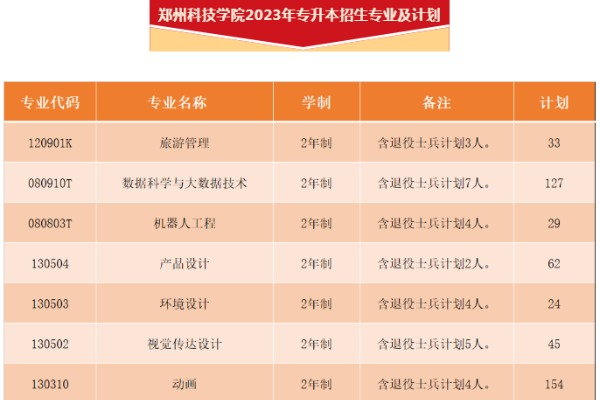昨天给大家整理了一篇专升本英语和四级的对比,大家可以点此查看 别天真了,专升本英语和四级真的不一样!
别天真了,专升本英语和四级真的不一样!
既然专升本的重点、难点是语法,那么今天就给同学们整理了一份干得不能再干的专升本语法知识点。考前一个月,你就算是直接死记硬背也要把语法这几分拿到手。
1、名词的单复数
规则变化+s/es、不规则变化(如:mouse-mice)、单复数同形、集合名词有可能表单数意义也可能表复数意义
2、名词所有格
‘s(表示有生命:Lily’s desk)、of所有格(表示无生命the window of the room)
3、名词修饰语
只修饰可数名词(each、every、a great many)、只修饰不可数名词(little、a little、 a large amount of)、都可以修饰(some、a lot of、plenty of)
4.不定冠词
(a/an单数不特指);定冠词(the/this/that/these/those表特定)
5、such的用法
such作限定词和all, no, any, some, other, anther等词连用时,such放后面。
如果such修饰单数可数名词,且与不定冠词连用时需置于其前;such前有no时不用冠词。
6、so的用法
在believe, think, expect, suppose等词后用so代替前文提出的观点
在肯定句中表示与上文相同的情况,如:So do I.
7、all和both的用法
all三者或三者以上全部都,both二者都。all指整体或抽象事物时当做单数,指人时当做复数。both做主语时,谓语动词用复数。
8、many修饰或替代可数名词,much修饰或替代不可数名词
many a 许多(谓语动词用单数)
a good/great many很多
as many as/as much as和……一样多、差不多
9、little几乎没有,修饰不可数名词
a little有一点,修饰不可数名词;little 几乎没有,修饰不可数名词。
a few有一点,修饰可数名词;few几乎没有,修饰可数名词
10、形容词比较级最高级
原级比较:…is as good as mine.
表示少于或超过另一方:fewer than, more than
易混淆短语:as well as 也,又;和……一样
as far as就…而言
11、比较级常见错误:用much表强调时的误用
She looks more younger than I.(×)
She looks much younger than I.(√)
12、介词短语重点
except for除了
in place of代替
on behalf of代表
but for要不是
in front of在…前面
13、介词across, over, through, past四个常考介词的区别
across 横穿穿越,发生在物体表面
over 跨过越过,发生在物体上方
through 穿过,发生在某物空间内
past 从旁经过
14、易混淆的介词短语
in all总共
after all毕竟
at all根本,常用在否定句中表强调
above all最重要的是,尤其是
15.序数词前一定要加定冠词the
序数词与基数词连用时,序数词放在前面,如the first one。
16、will和would的用法(常考)
will常与第二人称you连用,表示征求对方意见,will you/won’t you?
would更委婉客气一些,常用短语:would like to do/would rather宁愿
17、虚拟语气
一种指与事实相反或不可能发生。
“虚拟条件句+虚拟主句”的结构都属于这一类;
even if、even though、as if、as though引导的状语中如果需要用到虚拟语气也属于这一类;
wish、would rather后面接的宾语从句表示不可能实现的愿望,还是属于这一类。
另一种指与事实实际是否发生没有直接关系。易学仕专升本整理。
如suggest、order、demand等表示建议、命令、要求等相关的名词性从句都属于这一类。
18、一般现在时表将来的2种情况:
拟定或安排好的事情、一定要发生的动作:The train arrives at 10.
在时间状语从句、条件状语从句、让步状语从句中一般现在时表将来
过去即将要发生的动作:was/were about to do sth.
19、句子中出现过去时,才会使用过去完成时表过去的过去.
The thief had run away before the police came.
20、主谓一致
the number of+复数名词作主语时,谓语动词用单数
a number of+复数名词时,谓语动词用复数
Some, plenty of , a lot of,谓语动词根据所修饰的词而定
large quantities of谓语动词用复数
21、谓语动词就近一致:
either…or…/neither…nor…/not only…but also…谓语动词和靠近的主语一致
22、同位语从句
常跟同位语从句的名词或短语:belief /doubt /hope /report /word /opinion /idea…
使用举例:We have some doubt whether they can complete the task on time.
23、直接引语和间接引语
变间接引语要向前推一个时态!
例:He said, ”I am sorry.”
He said that he was sorry.
24、定语从句who/whom的用法(介词+whom)例:
He is the man who lives next door.
I have many friends to whom I am going to send postcards.
25、定语从句that/which的用法,通常可以互换,但下列情况必须用that
先行词是all, much, few, little, something等不定代词
先行词有the only, the same, the very修饰时
主句是以which开头的特殊疑问句时
先行词既有物又有人时,先行词是序数词、形容词最高级时
26、表示一…就的引导词
as soon as/immediately/instantly/the moment/no sooner than/hardly
(no sooner与hardly在句首时要求句子倒装)
27、so that 连用引导目的/结果状语从句
so adj./adv./many/few+ that:There is so little time that…
such a/an +adj.+名词+that:Kathy is such a lovely girl that…
28、"wish +宾语从句",表示不大 可能实现的愿望
表示现在的不能实现的愿望:主语+过去时;
表示过去的不能实现的愿望:主语+had done;
表示将来的不能实现的愿望:主语+would/could do
29、It was + 时间段+before…."过了多久才……"
It was not long before…."不久,就……"
It will (not) be +时间段+before…."要过多久(不久)……才……"(before从句谓语动词要用一般时态)
30. as if/though+主语+did/had done…好像……(表示现在或将来的情况用过去时;表示过去的情况用过去完成时)
[例句]Our head teacher treats us as if we were her own children, so all the students in our class think highly of her.
31、as, though, although引导的让步状语从句。
although位于句首;though位于句首或句中;as位于句中=though。它的词序是把句中强调的形容词、副词、动词或名词放在连词前。
32、in case of…(+n.) "以防;万一";
in case that…"以防,万一……"(谓语动词用一般现在时态或should+动词原形)
33、全部倒装句的常见结构:
here, there, now, then, thus等副词置于句首, 谓语动词常用be, come, go, lie, run。
Eg:There goes the bell.
表示运动方向的副词或地点状语置于句首,谓语表示运动的动词。
Out rushed a missile from under the bomber.
34、部分倒装句的结构和用法
把“so ... that ...”句型中的“so + 形容词 / 副词”部分放在句首时,be动词或助动词放在主语前面。
eg:So frightened was the girl that she daren't move an inch further.
用so,neither或nor构成的特殊句型,表示另一人或物也具有和前面提到的同样情况时,出现部分倒装。
eg:Jim asked the question. So did Lily.
把具有“否定”意义的词语放在句首时,出现部分倒装。eg:Never shall I forget your advice.
35、特殊情形倒装
“only + 状语从句”和“not until + 从句”位于句首时,在主句中进行倒装。
eg:Not until the child slept did the mother leave the room.
“not only...but also...”连接两个分句,not only位于句首时,倒装在not only所在分句进行。如:Not only were the children moved but also the adults showed their pity.
“no sooner...than...”句型中的no sooner位于句首时,倒装在no sooner 主句中进行;“hardly / scarcely...when...”句型中的hardly位于句首时,倒装在hardly / scarcely主句中进行。
36、should+动词原形的虚拟结构
在这个情况下,宾语从句需要使用should+动词原形,口诀:一、二、四、四:
一个坚持(insist)
两个命令(order、command)
四个建议(suggest、propose、recommend、advise)
四个要求(demand、require、request、desire)
I suggest you should have enough sleep.
37、by的用法
在…旁边: stand by me
靠、通过某种手段、交通工具:by bus
按照:It is 8 by my watch.
在…之前、不迟于:Can you return the book by Monday?
被、由用于被动语态:written by JK.Rowling
38、for的用法
为了、给(表示目的)
历经(时间、距离)for a month
以…代价/价钱交换
支持赞成,反义词against
 抖音
抖音

 微信
微信

 微博
微博

 QQ群
QQ群

 400-023-1785
400-023-1785 


























